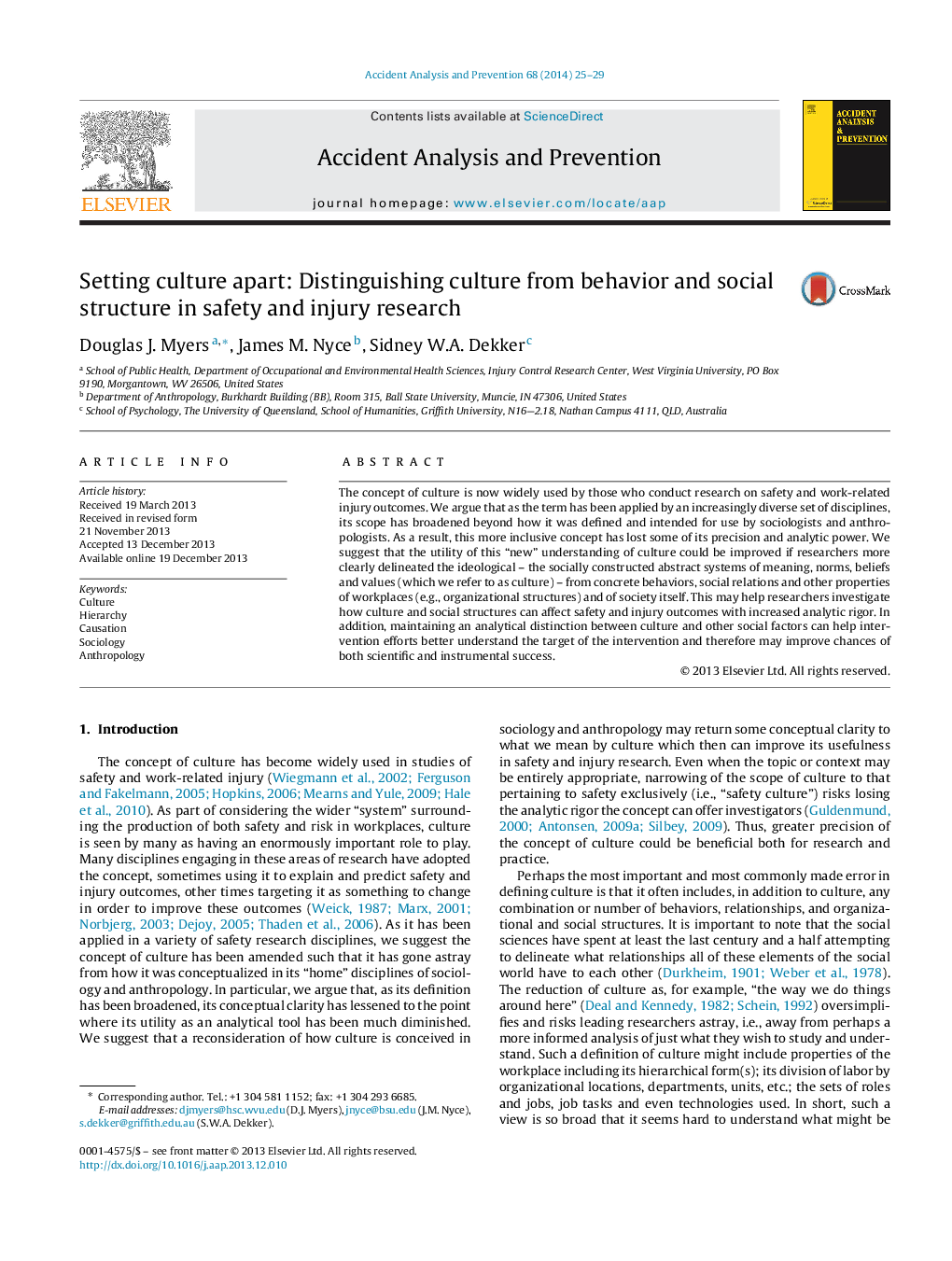| Article ID | Journal | Published Year | Pages | File Type |
|---|---|---|---|---|
| 6965943 | Accident Analysis & Prevention | 2014 | 5 Pages |
Abstract
The concept of culture is now widely used by those who conduct research on safety and work-related injury outcomes. We argue that as the term has been applied by an increasingly diverse set of disciplines, its scope has broadened beyond how it was defined and intended for use by sociologists and anthropologists. As a result, this more inclusive concept has lost some of its precision and analytic power. We suggest that the utility of this “new” understanding of culture could be improved if researchers more clearly delineated the ideological - the socially constructed abstract systems of meaning, norms, beliefs and values (which we refer to as culture) - from concrete behaviors, social relations and other properties of workplaces (e.g., organizational structures) and of society itself. This may help researchers investigate how culture and social structures can affect safety and injury outcomes with increased analytic rigor. In addition, maintaining an analytical distinction between culture and other social factors can help intervention efforts better understand the target of the intervention and therefore may improve chances of both scientific and instrumental success.
Related Topics
Physical Sciences and Engineering
Chemical Engineering
Chemical Health and Safety
Authors
Douglas J. Myers, James M. Nyce, Sidney W.A. Dekker,
